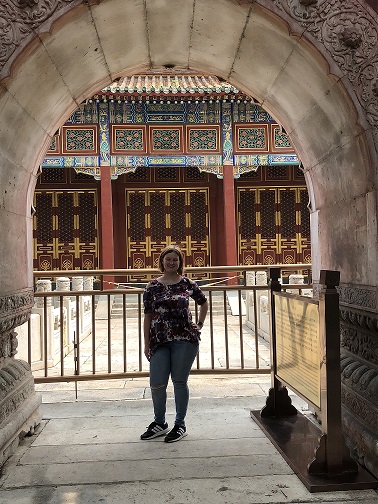It Takes a City to Raise a Child
Monday was my first holiday in China. It was the Dragon Boat Festival, which is the festival that commemorates the death of Qu Yuan, the poet from the Zhou Dynasty. I went to Beihai park expecting to see the traditional dragon boats, 粽子 (zongzi), and celebration. This did not happen. Although, this festival is practiced everywhere in China now, it originated in the south were Qu Yuan lived and died. Therefore, the north did not celebrate the tragic passing of this poet except for canceling work. They do still race the boats but it seems that they race them the week before the festival instead of on it. At first, I was surprised that there was not a big celebration, but the more I thought about it, the more it made sense. Qu Yuan was the one who warned about the Qin and was exiled for it. Then the Qin took over the Chu and made the Qin Dynasty, which is considered the first dynasty of China. Qu Yuan became very upset by this, so he committed suicide by throwing himself in the river. People threw 粽子 in the river to keep the fish from eating his body and they raced the dragon boats to get his body. This is where the festival comes from. It makes sense that the north would have smaller celebrations because the north was the Qin and not the Chu and did not start celebrating this festival until a much later time. This is why the amount of celebration between the north and south is different.
The main consistency I saw in the Chinese this week was how much they take care of their children. During the day, you can see grandparents taking care of their grandchildren. They will bring them to parks, school, and classes while their parents are at work. When the grandparents, or the parents, are out and about with the children people react in similar ways: they help them. For example, Beijing does not really have the culture of giving up their seat on the subway for anyone who is not injured or elderly. However, people will often give their seats up for the children and their caregivers. They also get special treatment at the supermarket where the clerk is actively engaging the child and helping the caregiver as much as they can. It is not uncommon to see strangers offer assistance to caregivers of children. This is quite different than in the United States where people tend to let parents take care of their own.
At work this week, I continued to research about how the Internet affects children. The main takeaway I got this week was how little research there is about children's use of the Internet. There were plenty of studies about cyberbullying and sexual exploitation but not that much about how use of the Internet affects children. Between introduction to marketing campaigns, social media, violence, and sexual images there is much that the Internet can do to affect children. Several countries have attempted to try to protect children from harmful Internet usage through legislation and education campaigns, but I do not feel like these campaigns are going to help that much. How can they if the countries do not know what is harmfully affecting the children?
Overall, this week I learned about regional differences in China including the Dragon Boat Festival. I learned how much the world is lacking in research on the effect of the Internet on children. I also learned that it takes a city to raise a child and the people of Beijing are more than ready to help.
